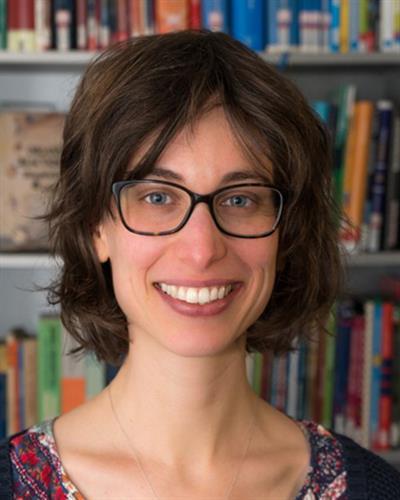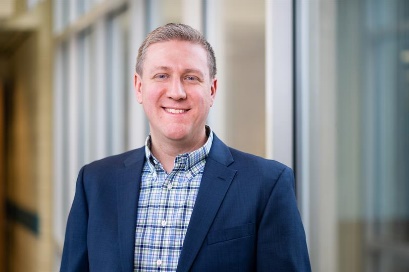Chemistry Department
Yu-Shan Lin, Chair of Department of Chemistry
https://chem.tufts.edu/people/faculty/yu-shan-lin

Research/Areas of Interest
Theoretical and Computational Biophysical Chemistry. The YSL Group aims to elucidate the structures and functions of biomolecules by integrating the power of advanced computations with the elegance of chemical theory. Our focus is to develop and apply computational methodology to significant biological problems that are difficult to address experimentally. Two major research projects in the YSL Group are (1) to understand and design cyclic peptides with desired conformations to modulate protein–protein interactions and (2) to elucidate the structural and functional roles of post-translational modifications and non-natural amino acids on protein folding.
Education
- PhD Chemistry, University of Wisconsin–Madison, Madison, United States, 2009
- MS Chemistry, University of Wisconsin–Madison, Madison, United States, 2007
- BS Chemistry, National Taiwan University, Taipei, Taiwan, 2004
Clay Bennett
https://chem.tufts.edu/people/faculty/clay-bennett

Research/Areas of Interest
Organic Synthesis, Carbohydrate Chemistry, Synthetic Methodology, Bioorganic Chemistry. Complex carbohydrates play critical roles in a number of biological processes including, protein folding, cellular adhesion and signaling. Despite their importance, very little is understood about the molecular basis of their activity. This is largely due to the fact that the only source of pure oligosaccharides is tedious multi-step synthesis, which can take months or even years to compete. Our research is focused on developing methodologies, based on asymmetric catalysis, to streamline complex oligosaccharide synthesis. Ultimately such methods will aid in the rapid and routine preparation of oligosaccharides for biophysical studies and drug discovery.
Education
- PhD Organic Chemistry, University of Pennsylvania, Philadelphia, United States, 2005
- BA (cum laude) ACS Chemistry, Connecticut College, New London, United States, 1999
Ira Caspari-Gnann
https://chem.tufts.edu/people/faculty/ira-caspari-gnann

Research/Areas of Interest
Chemistry and STEM Education. In order to understand how and why successful teaching and learning of chemistry at the university level works, the Caspari research group focuses on analyzing students', teaching assistants' (TA), learning assistants' (LA), and instructors' reasoning, interactions, and culture. The group collects video data of classroom practices and conducts qualitative research interviews with instructors, TAs, LAs, and students to better understand how certain interactions and ways of reasoning lead to student sense making and learning. While zooming in and investigating how students connect aspects of chemistry, the group also zooms out and investigates classroom culture and how individual interactions and personal experiences integrate into larger systems of teaching and learning. The group uses this fundamental research as a theoretical basis for implementing teaching innovations and designing training opportunities in order to promote supportive learning environments for students that value and encourage their unique ways of being, knowing and doing.
Education
- PhD Chemistry, Justus Liebig University, Giessen, Germany, 2018
- MEd Chemistry and Biology, Johannes Gutenberg University, Mainz, Germany, 2013
- BEd Chemistry and Biology, Johannes Gutenberg University, Mainz, Germany, 2010
Krishna Kumar
https://chem.tufts.edu/people/faculty/krishna-kumar

Research/Areas of Interest
Bioorganic Chemistry and Chemical Biology: The research interests of the Kumar laboratory are centered on the (1) use of chemistry to design molecules to interrogate and illuminate fundamental mechanisms in biology, or be used as therapeutics; and (2) use of biology to "evolve" and "select" molecules that can perform chemistry in non-biological and medicinal settings.
These are some questions we are trying to answer: (i) Is it possible to design and mimic natural proteins and other biological macromolecules by use of building blocks that nature does not use – and whether such constructs can be endowed with properties that are not found in biology?; (ii) How did the first enzymes arise in the imagined Darwin's pond – is there a way to recreate this scenario and in the process develop a fundamentally new method to create enzymes?; (iii) Biology uses phase separation, that is, clustering of different compounds in confined locations – a process that is key in orchestrating the daily activities of a cell – can we find methods that can predictably dictate where molecules are located in a given environment and thereby direct the phenotype that is generated?; (iv) Can we rationally design small molecules and peptides that can function against antibiotic resistant bacteria that are threatening the most basic tenet of modern medicine?
Education
- PhD, Brown University, Providence, United States, 1996
- BSc (Honours), St. Stephen's College, University of Delhi, Delhi, India, 1991
Charlie Mace
https://chem.tufts.edu/people/faculty/charlie-mace

Research/Areas of Interest
Bioanalytical and Materials Chemistry: To solve outstanding problems in global health, the Mace Lab applies a multidisciplinary approach combining aspects of analytical chemistry, materials science, and engineering. The primary goal of the Mace lab is to develop low cost, patient-centric technologies that can improve access to healthcare. To achieve this, the Mace Lab designs devices that improve the self-collection of blood and enable the diagnosis of diseases in resource-limited settings, and they are exploring ways the methods that are developed in the lab can used by others. Their main techniques leverage the properties of paper and other porous materials to integrate function into simple, affordable devices. unique to laboratories in Chemistry departments, his group specializes in handling human blood and saliva. Technologies developed in the Mace lab have made the leap to clinical sites in Africa, South America, and the US, owing to their network of clinical, academic, and industry collaborators. The Mace Lab has broad expertise in assay development and device prototyping, which they apply to evaluating the efficacy of candidate therapeutics, performing separations that lead to new measurements, and making field-deployable kits for point-of-care testing. They have additional expertise in instrument development, phase separation in systems of polymers, and microfluidics.
Education
- PhD Biophysics, University of Rochester, Rochester, United States, 2008
- MS Biophysics, University of Rochester, Rochester, United States, 2006
- BS Physics, Le Moyne College, Syracuse, United States, 2003